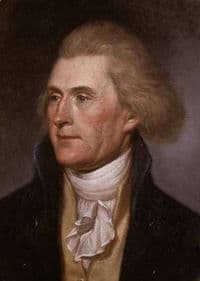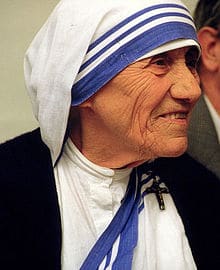7Aristotle (384BC – 322BC)
“Time crumbles things; everything grows old under the power of Time and is forgotten through the lapse of Time. “
– Aristotle (Physics)
Living in the same time period as Plato and Alexander the Great, Aristotle helped lay the foundations for western civilisation through his wide range of intellectual and scientific studies.
Aristotle was one of the great polymaths of his time. He studied under Plato and therefore learnt much about the great philosophic traditions of Socrates. But, Aristotle was more than just a good student; he had an independent mind and was able to question many different things and sought to resolve difficult questions and previously unsolvable problems. He made studies in botany, physics, philosophy, logic, and was well known for being a powerful lecturer and debater. He was also regarded as a kindly man, compassionate to others.
In the field of physics, Aristotle’s ideas influenced much of the medieval period, and lasted into the European Renaissance. His ideas were later replaced by the physics of Isaac Newton.
Aristotle believed in the power of reason to illuminate the problems of man. He believed that man had the capacity for enlightenment through self inquiry and study. He believed that human goodness derived from rational thought. Aristotle was also a playwright and he described how the weakness of man – pride, anger, jealousy, could lead to his downfall.
Piety requires us to honor truth above our friends.
– Aristotle (Nicomachean Ethics)
Aristotle was also the teacher of the future Macedonian King – Alexander the Great. Aristotle taught the future king, political philosophy, history and ethics. Alexander the Great was to ignore much of Aristotle’s teachings such as the desirability of oligarchic leadership, but, his education by Aristotle must have left an abiding impression on the young prince.
If liberty and equality, as is thought by some, are chiefly to be found in democracy, they will be best attained when all persons alike share in the government to the utmost.
– Aristotle (Politics)
Aristotle’s work Politics, is an attempt at a practical philosophy to allow justice and freedom. He also saw politics as a method of ensuring man had the capacity to live harmoniously and allow him to pursue noble ideas.
“The political partnership must be regarded, therefore, as being for the sake of noble actions, not for the sake of living together.”
Aristotle had so many interests, that he had a very wide influence over the development of Western civilisation. In addition to the above interests, he pioneered the study of zoology, logic and helped in the development of medicine, optics, and ethics.
“One swallow does not make a summer, nor does one day; and so too one day, or a short time, does not make a man blessed and happy. “
– Aristotle (Nicomachean Ethics)
Aristotle, was one of the few philosophers who strongly influenced later Christian writers such as Thomas Aquinas.
“Time crumbles things; everything grows old under the power of Time and is forgotten through the lapse of Time. “
Piety requires us to honor truth above our friends.
If liberty and equality, as is thought by some, are chiefly to be found in democracy, they will be best attained when all persons alike share in the government to the utmost.
“One swallow does not make a summer, nor does one day; and so too one day, or a short time, does not make a man blessed and happy. “
 Born in 1879, Ulm Germany, Albert Einstein was to become the most celebrated scientist of the Twentieth Century. His theories were to lay the framework for new branches of physics. He also become well known as a humanitarian, speaking out against nuclear weapons – weapons he had indirectly contributed towards creating.
Born in 1879, Ulm Germany, Albert Einstein was to become the most celebrated scientist of the Twentieth Century. His theories were to lay the framework for new branches of physics. He also become well known as a humanitarian, speaking out against nuclear weapons – weapons he had indirectly contributed towards creating. As a young child Thomas Jefferson was an enthusiastic student, often spending up to 15 hours a day studying. He was to retain a life long interest in reading. He had both a keen intellect and also a wide range of interests. His interests ranged from philosophy and architecture to the natural sciences. At the age of 16 he entered the College of William and Mary in Williamsburg, and two years later he graduated with the highest honours. After leaving college he became a lawyer and later served in the Virginian state Burgess. One of his earliest political writings of significance was A Summary View of the Rights of British America (1774). This expressed a thoughtful summary of a way America could make a settlement with Britain. It played an important role in shaping opinions in the lead up to the War of Independence.
As a young child Thomas Jefferson was an enthusiastic student, often spending up to 15 hours a day studying. He was to retain a life long interest in reading. He had both a keen intellect and also a wide range of interests. His interests ranged from philosophy and architecture to the natural sciences. At the age of 16 he entered the College of William and Mary in Williamsburg, and two years later he graduated with the highest honours. After leaving college he became a lawyer and later served in the Virginian state Burgess. One of his earliest political writings of significance was A Summary View of the Rights of British America (1774). This expressed a thoughtful summary of a way America could make a settlement with Britain. It played an important role in shaping opinions in the lead up to the War of Independence. Mother Teresa was born, 1910, in Skopje, capital of the Republic of Macedonia. Little is known about her early life, but at a young age she felt a calling to be a nun and serve through helping the poor. At the age of 18 she was given permission to join a group of nuns in Ireland. After a few months of training, with the Sisters of Loreto, she was then given permission to travel to India. She took her formal religious vows in 1931, and chose to be named after St Therese of Lisieux – the patron saint of missionaries.
Mother Teresa was born, 1910, in Skopje, capital of the Republic of Macedonia. Little is known about her early life, but at a young age she felt a calling to be a nun and serve through helping the poor. At the age of 18 she was given permission to join a group of nuns in Ireland. After a few months of training, with the Sisters of Loreto, she was then given permission to travel to India. She took her formal religious vows in 1931, and chose to be named after St Therese of Lisieux – the patron saint of missionaries. She experienced two particularly traumatic periods in Calcutta. The first was the Bengal famine of 1943 and the second was the Hindu/Muslim violence in 1946 – before the partition of India. In 1948, she left the convent to live full time amongst the poorest of Calcutta. She chose to wear a white Indian Sari, with blue trimmings – out of respect for the traditional Indian dress. For many years, Mother Teresa and a small band of fellow nuns survived on minimal income and food, often having to beg for funds. But, slowly her efforts with the poorest were noted and appreciated by the local community and Indian politicians.
She experienced two particularly traumatic periods in Calcutta. The first was the Bengal famine of 1943 and the second was the Hindu/Muslim violence in 1946 – before the partition of India. In 1948, she left the convent to live full time amongst the poorest of Calcutta. She chose to wear a white Indian Sari, with blue trimmings – out of respect for the traditional Indian dress. For many years, Mother Teresa and a small band of fellow nuns survived on minimal income and food, often having to beg for funds. But, slowly her efforts with the poorest were noted and appreciated by the local community and Indian politicians. In 1979, she was awarded the Nobel Peace Prize “for work undertaken in the struggle to overcome poverty and distress, which also constitutes a threat to peace.” She didn’t attend the ceremonial banquet, but asked that the $192,000 fund be given to the poor.
In 1979, she was awarded the Nobel Peace Prize “for work undertaken in the struggle to overcome poverty and distress, which also constitutes a threat to peace.” She didn’t attend the ceremonial banquet, but asked that the $192,000 fund be given to the poor. Leonardo was born an illegitimate son of a Florentine noble and peasant woman and grew up in Vinci, Italy. In his formative years he developed a love of nature and from an early age displayed his remarkable academic and artistic talents and capacities.
Leonardo was born an illegitimate son of a Florentine noble and peasant woman and grew up in Vinci, Italy. In his formative years he developed a love of nature and from an early age displayed his remarkable academic and artistic talents and capacities.
 Abraham lost his mother and his father moved away to Indiana. Abraham had to work hard splitting logs and other manual labour. But, he also had a thirst for knowledge and worked very hard to excel in his studies. This led him to become trained as a lawyer. He spent eight years working on the Illinois court circuit; his ambition, drive and capacity for hard work were evident to all around him. He also had a good sense of humour and was depreciating about his looks.
Abraham lost his mother and his father moved away to Indiana. Abraham had to work hard splitting logs and other manual labour. But, he also had a thirst for knowledge and worked very hard to excel in his studies. This led him to become trained as a lawyer. He spent eight years working on the Illinois court circuit; his ambition, drive and capacity for hard work were evident to all around him. He also had a good sense of humour and was depreciating about his looks.